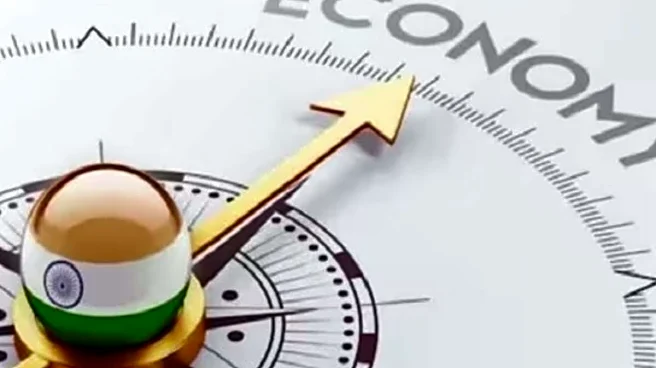Amid India’s gradually improving fiscal indicators, Moody’s Ratings on Monday affirmed India’s long-term local- and foreign-currency issuer ratings, as well as the local-currency senior unsecured rating,
at Baa3.
“The stable outlook incorporates India’s gradually improving fiscal metrics and resilient growth prospects compared with peers. However, fiscal accommodation in the context of the uncertain global macroeconomic outlook, including revenue-eroding measures, could impede progress towards debt reduction and exacerbate already weak debt affordability,” Moody’s said in its statement.
The rating agency maintained its outlook for India as stable. “The rating affirmation and stable outlook reflect our view that India’s prevailing credit strengths, including its large, fast-growing economy, sound external position and stable domestic financing base for ongoing fiscal deficits will be sustained,” the agency noted.
Moody’s added that these strengths help India remain resilient to adverse external headwinds, especially as high US (Aa1 stable) tariffs and other international policy measures could hinder India’s ability to attract manufacturing investment.
While highlighting India’s credit positives, Moody’s pointed out long-standing fiscal challenges that persist. It said that strong GDP growth and gradual fiscal consolidation will drive only a slow decline in the government’s high debt burden, insufficient to materially improve weak debt affordability—particularly as recent fiscal measures aimed at boosting private consumption erode the government’s revenue base.
On US tariffs and H-1B visas
Moody’s said that the US imposition of higher tariffs on India will have only limited negative effects on India’s near-term economic growth.
“However, it may constrain potential growth over the medium to long term by hindering India’s ambitions to develop a higher value-added export manufacturing sector,” the agency warned.
The agency had earlier estimated that the 50% tariff on Indian goods announced by the US could trim India’s growth by about 0.3 percentage points, reducing it from the projected 6.3% for 2025-26. Nevertheless, it noted that strong domestic demand and a resilient services sector would cushion much of the impact.
Moody’s also said it does not expect other US policy shifts—such as restrictions on new applications for skilled-worker (H-1B) visas or potential levies on US firms outsourcing offshore—to significantly affect India’s workers’ remittances or services exports.







/images/ppid_a911dc6a-image-177081843992562316.webp)

/images/ppid_a911dc6a-image-177081803750877941.webp)
/images/ppid_a911dc6a-image-177081807334432740.webp)
/images/ppid_a911dc6a-image-177081811082158717.webp)
/images/ppid_a911dc6a-image-177081802823068201.webp)
/images/ppid_a911dc6a-image-177081803671793308.webp)
/images/ppid_59c68470-image-177081754567635886.webp)
